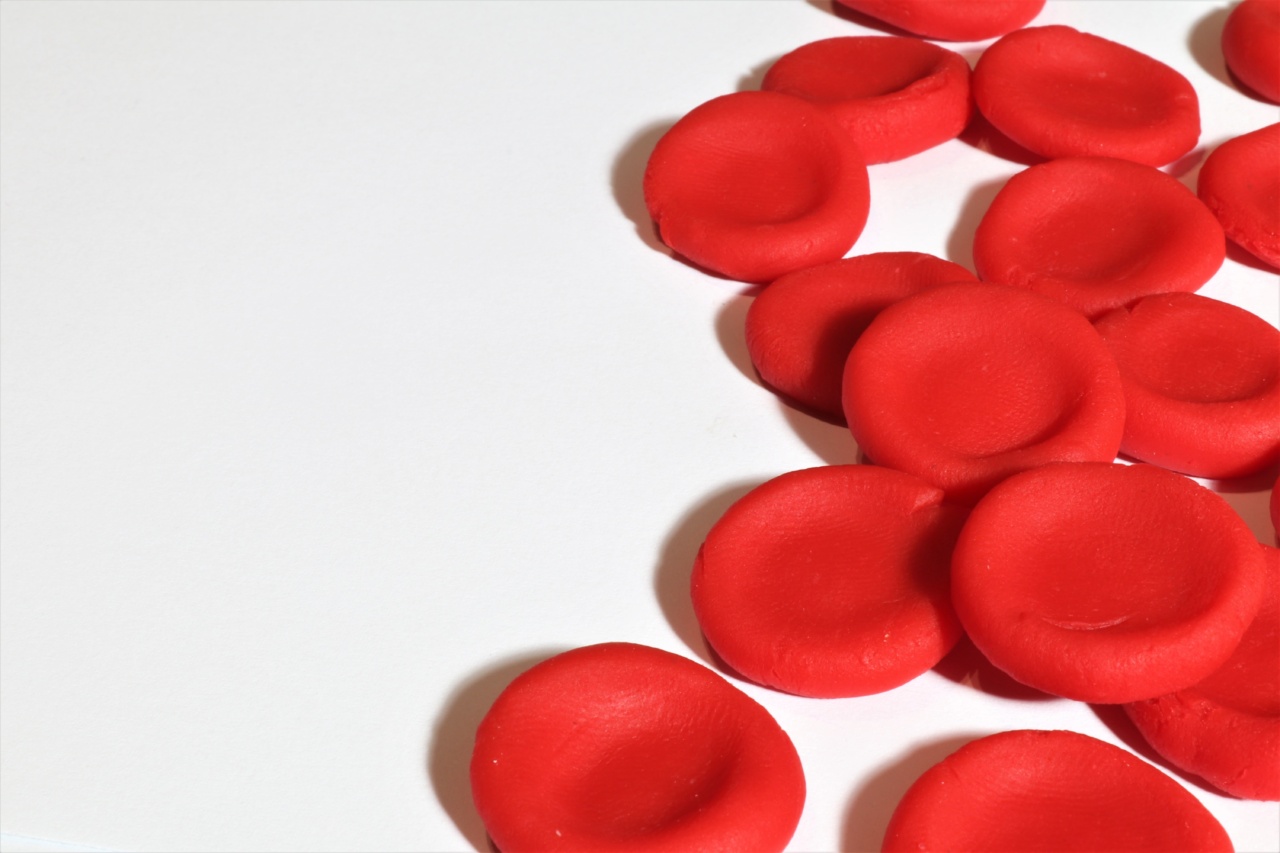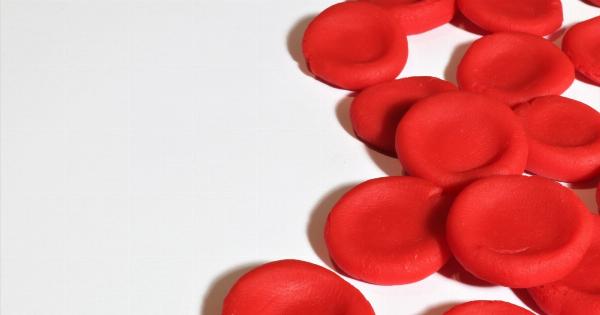Our body relies on red blood cells (RBCs) for carrying oxygen to all its tissues. These cells contain hemoglobin, a protein that binds to oxygen molecules and transports them throughout the body.
Low levels of RBCs, also known as anemia, can cause fatigue, weakness, and other health problems. While there are various underlying causes for low RBC count, including medical conditions and nutrient deficiencies, diet plays a crucial role in enhancing and maintaining healthy RBC levels.
In this article, we will explore the dietary strategies that can help enhance low red blood cells.
1. Iron-Rich Foods
Iron deficiency is a common cause of low red blood cell count. Including iron-rich foods in your diet can help replenish iron stores and improve RBC production. Some excellent sources of dietary iron include:.
- Red meat, such as beef and lamb
- Poultry, including chicken and turkey
- Seafood, like clams, oysters, and mussels
- Legumes, including lentils, chickpeas, and kidney beans
- Leafy green vegetables, such as spinach and kale
- Nuts and seeds, like pumpkin seeds and almonds
Combining these iron-rich foods with foods high in vitamin C, such as citrus fruits or bell peppers, can enhance iron absorption in the body.
2. Vitamin B12
Another essential nutrient for red blood cell production is vitamin B12. This vitamin is mainly found in animal products, making it crucial for individuals following a vegetarian or vegan diet to ensure adequate intake.
Include the following vitamin B12-rich foods to enhance RBC production:.
- Fish and seafood, like salmon, trout, and clams
- Poultry, including chicken and turkey
- Eggs and dairy products, such as milk and cheese
- Fortified plant-based milk and cereals
- Nutritional yeast, an excellent option for vegans
3. Folate-Rich Foods
Folate, also known as vitamin B9, is necessary for red blood cell formation. Including folate-rich foods in your diet can help improve RBC count. Here are some excellent sources of folate:.
- Leafy green vegetables, like spinach and asparagus
- Legumes, including lentils, chickpeas, and black beans
- Fortified grains, such as bread and cereal
- Citrus fruits, like oranges and grapefruits
- Avocado, a delicious source of folate
4. Vitamin A
Vitamin A is essential for the production and differentiation of red blood cells. Including foods rich in this vitamin can be beneficial in enhancing low red blood cell count. Some excellent sources of vitamin A include:.
- Orange and yellow fruits and vegetables, such as carrots and sweet potatoes
- Leafy green vegetables, like kale and spinach
- Eggs, milk, and other dairy products
- Fortified cereals, particularly those made from whole grains
- Fatty fish, such as salmon and mackerel
5. Vitamin E
Vitamin E is a powerful antioxidant that helps protect red blood cells from damage. Including foods rich in vitamin E can support RBC health. Some excellent sources of vitamin E include:.
- Seeds, such as sunflower seeds and almonds
- Nuts, including peanuts and hazelnuts
- Leafy green vegetables, like spinach
- Vegetable oils, such as sunflower oil and wheat germ oil
- Avocado, a delicious source of vitamin E
6. Copper
Copper is an essential mineral for red blood cell formation and helps in the absorption of iron. Including copper-rich foods in your diet can enhance RBC production. Some excellent sources of copper include:.
- Organ meats, like liver and kidney
- Shellfish, such as oysters and lobster
- Nuts and seeds, like cashews and sesame seeds
- Dark chocolate, with a high percentage of cocoa
- Legumes, including lentils and chickpeas
7. Vitamin C
Vitamin C is important for iron absorption and plays a role in RBC development. Including vitamin C-rich foods in your diet can help enhance low red blood cell count. Some excellent sources of vitamin C include:.
- Citrus fruits, like oranges and grapefruits
- Berries, including strawberries and blueberries
- Kiwi, a delicious and vitamin C-packed fruit
- Leafy green vegetables, like spinach
- Bell peppers, particularly red and yellow peppers
8. Avoid Iron Inhibitors
While incorporating iron-rich foods is important, it is equally crucial to avoid substances that inhibit iron absorption. Some of these inhibitors include:.
- Tannins in tea and coffee
- Calcium-rich foods, like dairy products, when consumed with iron-rich meals
- Phytates found in whole grains and legumes
- Oxalates present in spinach, beet greens, and rhubarb
- Preservatives containing EDTA
To maximize iron absorption, it is best to consume these inhibitors separately from iron-rich meals or opt for alternative sources of nutrients.
9. Hydration Importance
Staying adequately hydrated is crucial for overall health, including RBC production. Proper hydration helps maintain the volume and viscosity of blood, ensuring optimal transport of nutrients.
Make sure to drink sufficient water throughout the day to support healthy red blood cell levels.
10. Balanced Diet
A balanced diet plays a significant role in enhancing low red blood cells.
It is important to consume a variety of nutrient-dense foods from each food group to acquire all the necessary vitamins, minerals, and antioxidants essential for RBC production and overall health.
By incorporating these dietary strategies into your daily routine, you can enhance low red blood cell count and promote better overall well-being.































